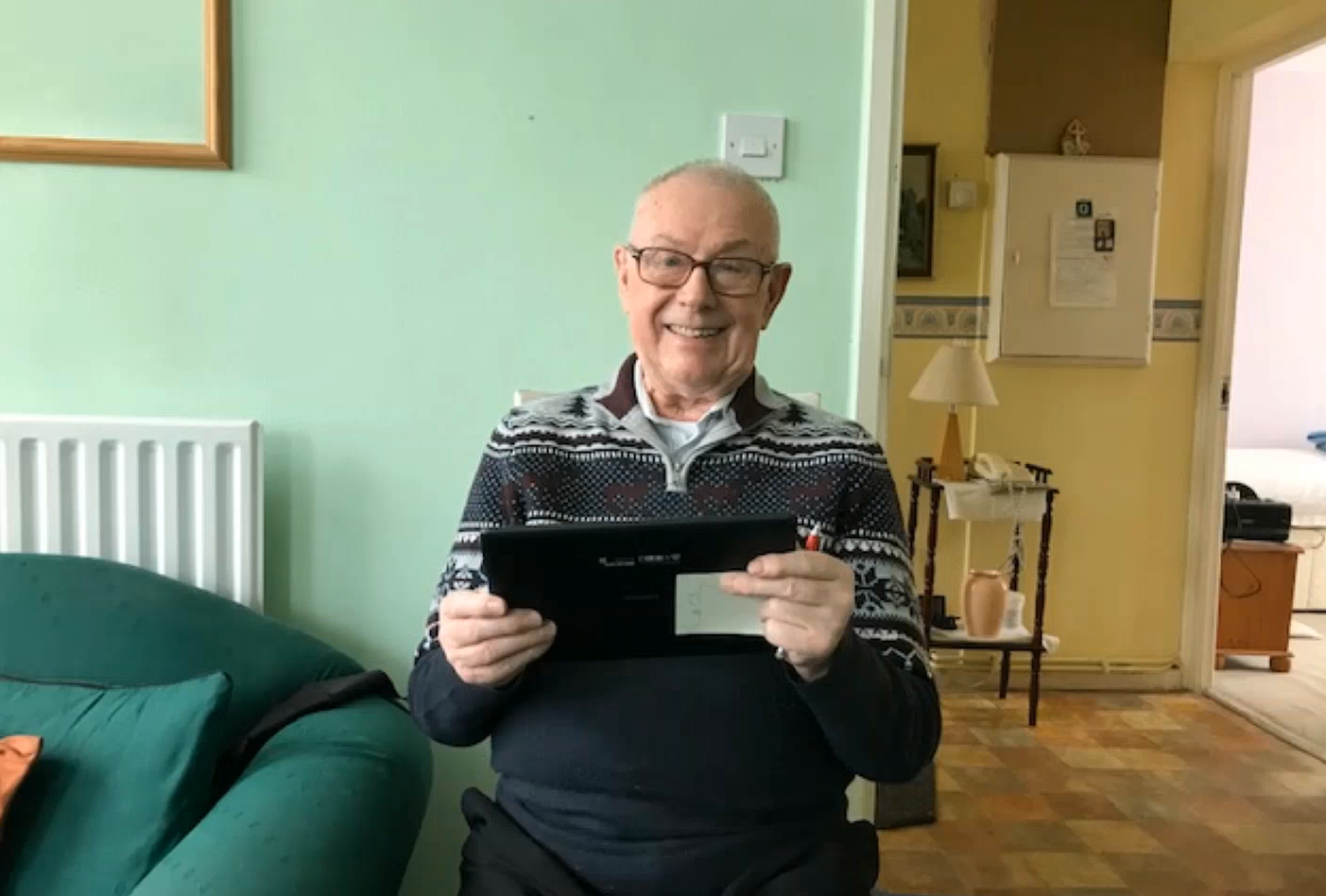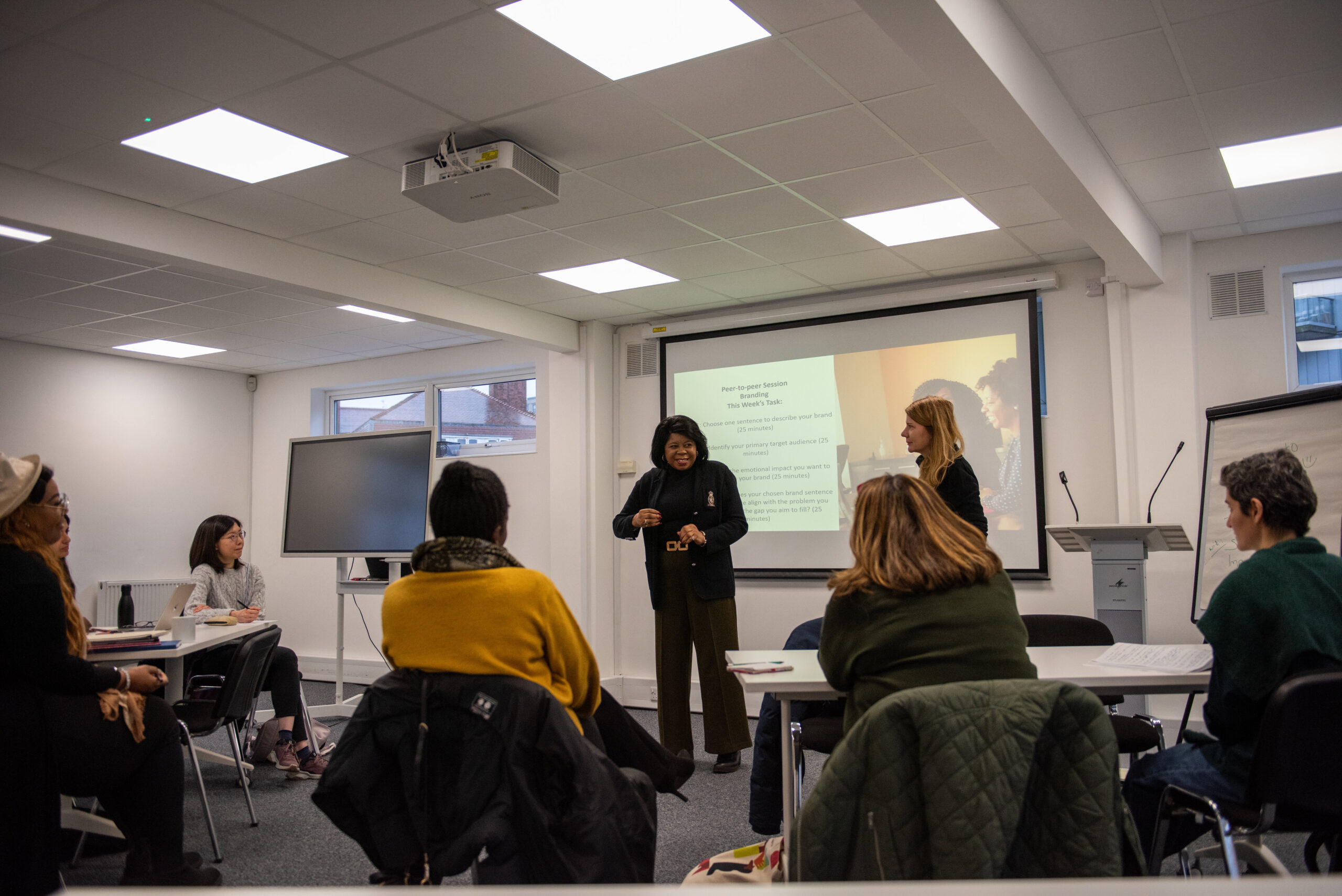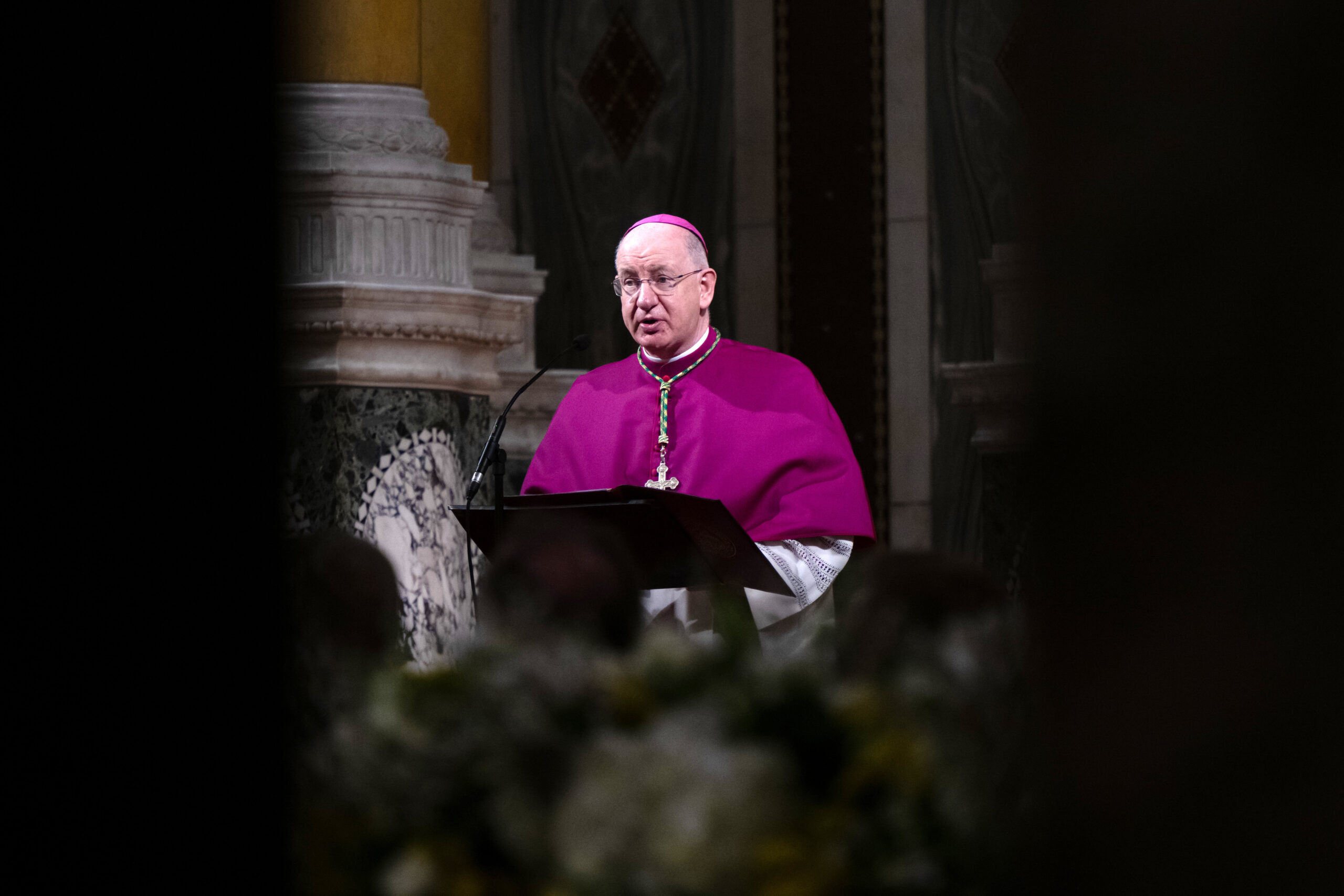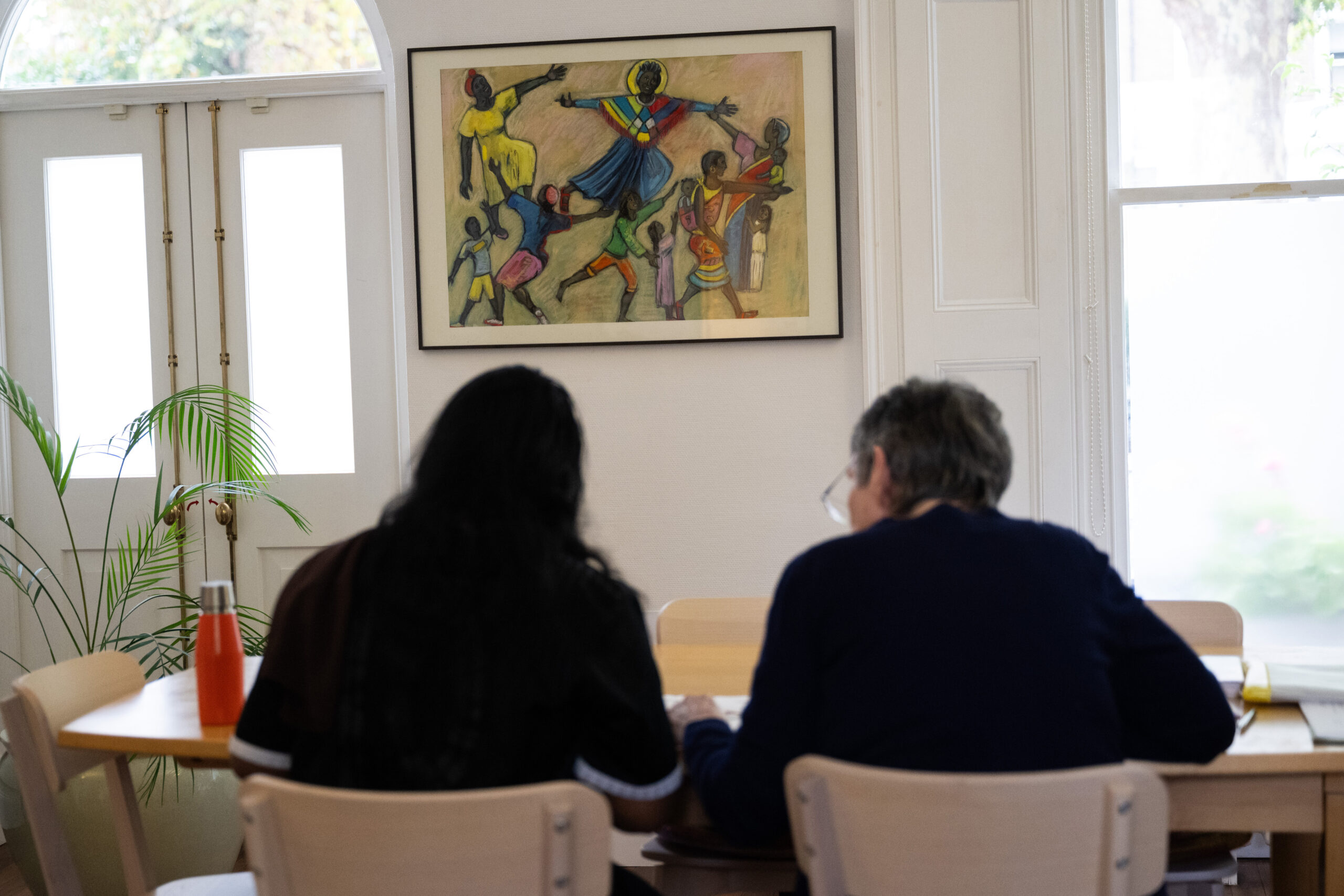In her work as Caritas Westminster’s Development Worker for East London, Minet Masho has witnessed first hand how loneliness often goes alongside other forms of deprivation, and how projects providing for material need can also give people the connections they need to prevent feelings of isolation. During Loneliness Awareness Week (14-18 June 2021) she reflects on loneliness, especially in the light of Covid-19:

with the Companions of the Order of Malta
Certainly the pandemic has brought a great deal of loneliness across the world, even more to those already suffering from solitude. The feeling of isolation does not discriminate: colour, age, religion and wealth are irrelevant when loneliness creeps up. One can feel lonely amongst a crowd, within the family unit, at work, in school and by living alone.
There are examples of loneliness in the Sacred Scriptures. In the Old Testament for instance, David is faced with loneliness and distress, he reaches out to God and says “Turn to me and be gracious to me, for I am lonely and afflicted.” – Psalm 25:16. David knows that God is his solace.
Elijah finds himself in a situation where he felt there was no way out and runs to the wilderness and shouts: “It is enough; now, O LORD, take away my life, for I am no better than my fathers.” – 1 Kings 19:4. Again, God listens to Elijah’s plea and tells him to take the road back to Damascus and fulfill his wishes.
However, it is clear that being alone is not the same as being lonely, and can have great benefits, for example Jesus “often withdrew to lonely places and prayed” – Luke 5:16. He is alone but not lonely as he is talking to God; knowing that these are moments of inspiration, strength and spiritual growth to complete God’s desire.
Although loneliness can affect anyone in any culture, I see it especially as a modern phenomenon in western countries where a sense of community has been replaced with individualism.
During the lockdowns imposed on us because of the Covid-19 pandemic, more people became isolated and loneliness was a problem. However the pandemic also brought communities together across the country; inter-faith groups reinforced their collaboration, and along with people of no faith joined Mutual Aid groups to help those in need.
Volunteering during this challenging time meant for a lot of people a way to fight loneliness and at the same time do something good for others.

A beneficiary of the Irish Chaplaincy’s programme keeping
up to date with his new tablet computer.
Here in Westminster Diocese, parish and school projects remained open during the pandemic, providing food, befriending services and virtual activities. Existing Social Action projects increased their services according to the needs in the areas. Other projects started out as a temporary measure to alleviate families with their financial and emotional struggles, but now are in full operation and will remain until the economy stabilises.
Caritas Kingsland Saturday Club offers a monthly session of prayers through activities, art and singing on a Biblical theme to adults with learning disabilities and their families. During the pandemic the sessions have continued via zoom and attracted many more families especially those adults who live in care homes with limited movements and unable to speak but happy to clap their hands, drum the table and laugh. For some participants it was challenging to meet via zoom but volunteers were able to catch up with a weekly phone call.
The Irish Chaplaincy created the “Keep Connected” programme during the lockdown which enabled isolated members of the Irish community to follow Mass and other services online using tablet computers.
At St Monica’s Parish in Hoxton, people come to the Food Shelter not only for the food but the company, as one woman told me:
“I can’t eat at home; I have to force myself to eat only runny food like soups. You need company – even if you are not talking – to stimulate your appetite. I don’t cook for myself, like I did when I was younger. When you are on your own, it’s depressing and boring. You need people, something to react to. Even before the pandemic many people are lonely, many old people and sometime you are ashamed to admit you are lonely or you are on your own and you need help. Sometimes you are afraid of being taken advantage of, especially when you are employing a plumber or electrician – I paid a lot of money to have my toilet unblocked – if I had someone with me, questioning….”
This shows how loneliness and isolation can affect many areas of a person’s life.
There is no cure for loneliness, and it can contribute to deep depression where a medical intervention is necessary.

the Companions Of the Order of Malta
However, in my experience there are some things that can help prevent loneliness:
- In the context of Christianity, living simply and being thankful each day can ease the feeling of loneliness. Living an individualistic way of life people have detached themselves from God consequently from others. Having a meaningful relationship with God helps us to forge meaningful relationship with our families, neighbours and the wider circle of people.
- To help us build these relationships with others and with God, I suggest minimising online activities, keeping working hours within determined times and spending more time with family, nature and others can suppress the feeling of loneliness.
- When loneliness separates us from others and God this can lead to negative thoughts such as anger, bitterness, pettiness, feeling unworthy with no desire to love and be loved. But by reaching out to others, for example, by volunteering, we can find connections with others and with God again.
Finding God in our heart in everyday life means living in harmony with ourselves and others.
In my work at Caritas Westminster, I see the impacts of loneliness but I also see the impact of projects which bring people together, volunteers and those whom they serve, creating a community of support for each other.

Minet Masho is Caritas Westminster’s Development Worker for East London
You might also be interested in:
Caritas St Joseph’s provides Digital Lifeline.
Caritas Westminster’s partner Neighbours in Poplar have created this video about their work combating loneliness and building community.
Diocese of Westminster and Caritas Volunteer Service celebrate volunteering at awards ceremony.




